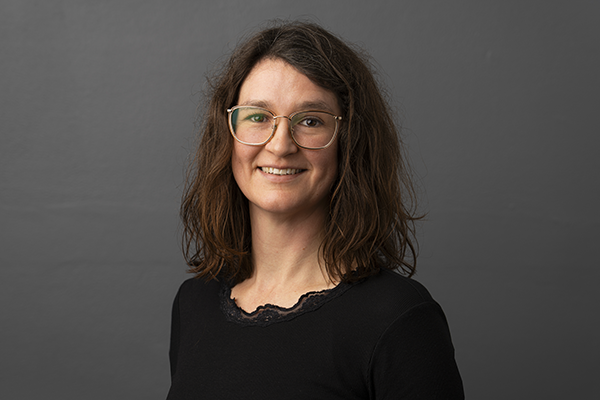Manja Hoppe Andreasen
Research leader

Project title
Urban encroachment – untangling drivers and dynamics of land-use transitions in ecologically sensitive areas
What is your project about?
Africa’s cities are growing rapidly – both demographically and spatially. Urban land cover is even growing faster than urban populations. This exerts significant pressure on surrounding natural areas and ecosystems. Meanwhile, natural areas are important for cities themselves, because they provide a range of important functions, such as water retention, groundwater infiltration, temperature regulation and recreational spaces. In this project, I want to examine the drivers and dynamics of urban encroachment in ecologically sensitive areas. I will conduct a comparative study of two rapidly growing cities – Accra in Ghana and Dar es Salaam in Tanzania – which have been characterized by extensive informal expansion in recent decades. I will combine analysis of satellite images and spatial data with in-depth fieldwork, both among local actors involved in land transactions, property investments and housing construction within ecologically sensitive areas, as well as among urban planners, civil servants and policymakers involved in spatial planning and management of ecologically sensitive areas.
How did you become interested in your particular field of research?
As a student, I lived in Dhaka in Bangladesh for a long period, one of the world’s largest cities, and this was in many ways a formative experience, which ignited my fascination of how people live, build and arrange themselves in these extremely rapidly growing cities. During my PhD, I lived in Dar es Salaam, Tanzania, and investigated the drivers and dynamics of new housing development in peripheral areas. I interviewed many different people, who live, build and invest in these emerging residential areas – and who typically also a play a significant role in development of infrastructure, access roads and services, with very limited involvement of urban authorities and planners. I think it is interesting to understand, how urban development is shaped by peoples’ considerations concerning for example housing preferences, wealth protection, economic security, social mobility and future aspirations, but also to investigate the planning challenges associated with informal urban development. My most recent research in Accra, Ghana, illuminates how escalating flood risk is deeply intertwined with the informal urban expansion and encroachment upon ecologically sensitive areas.
What are the scientific challenges and perspectives in your project?
It is always challenging to investigate processes and issues related to urban land governance in the context of African cities. This is both highly complex, very contextual and politically sensitive. One of the major challenges will be to examine the potential differences between existing policies, regulations and plans, as they are on paper, and how they are administered and implemented in practice. Urban development within ecologically sensitive areas may be shaped by alternative authorities, political patronage, selective implementation and corrupt practices, which will require long-term engagement in the field and deep contextual knowledge to uncover. Another major challenge will be to investigate the significance of absentee landowners and investors, who are not residing within ecologically sensitive areas under conversion, but who are nevertheless important actors shaping development in such areas.
What is your estimate of the impact, which your project may have to society in the long term?
The informal expansion is one of the major planning challenges in Africa’s rapidly growing cities. The combined effect of rapid urban expansion, encroachment upon ecologically sensitive areas and more extreme weather events due to climate change will exacerbate existing challenges with flooding and urban water management in African cities. To foster better planning – and to accommodate rapidly growing urban populations in more sustainable ways – we need insights into the diverse actors and social logics shaping encroachment upon ecologically sensitive areas, as well as how local actors navigate within existing urban governance arrangements concerning ecologically sensitive areas. It is such insights, that this research can contribute towards. The integration of spatial analyses and in-depth fieldwork offers a unique point of departure for understanding not only the scale and magnitude of natural areas lost, but also the underlying drivers and dynamics of encroachment upon ecologically sensitive areas.
Which impact do you expect the Sapere Aude programme will have on your career as a researcher?
The Sapere Aude: DFF Starting Grant means, that I can take the next important step and gain experience with leadership of a larger and complex research project. The grant will enable me to consolidate and expand my expertise on urban expansion dynamics in rapidly urbanizing, low- and middle-income countries. I will also be able to expand the collaborations and networks, I have built up over the past 10 years of research in Ghana and Tanzania. Last, but not least, I look forward to bringing together a strong team of excellent researchers with different competences, which will provide a strong point of departure for developing a comprehensive understanding of the drivers and dynamics of urban encroachment.
Background and personal life
I live in Albertslund west of Copenhagen with my husband and our three children aged 11, 8 and 2. We have travelled quite a bit and lived for longer periods in Holland, Tanzania, Bangladesh and Ireland. I enjoy spending time with family and friends, tending to my garden, with running shoes in Vestkoven and on the couch with a good book. I listen to hiphop, I bake many cakes and I have a passion for old tall ships.
View all research leaders here
Research institution
University of Copenhagen
Research field
Geography
City of your current residence
Albertslund
High school
Albertslund Gymnasium
